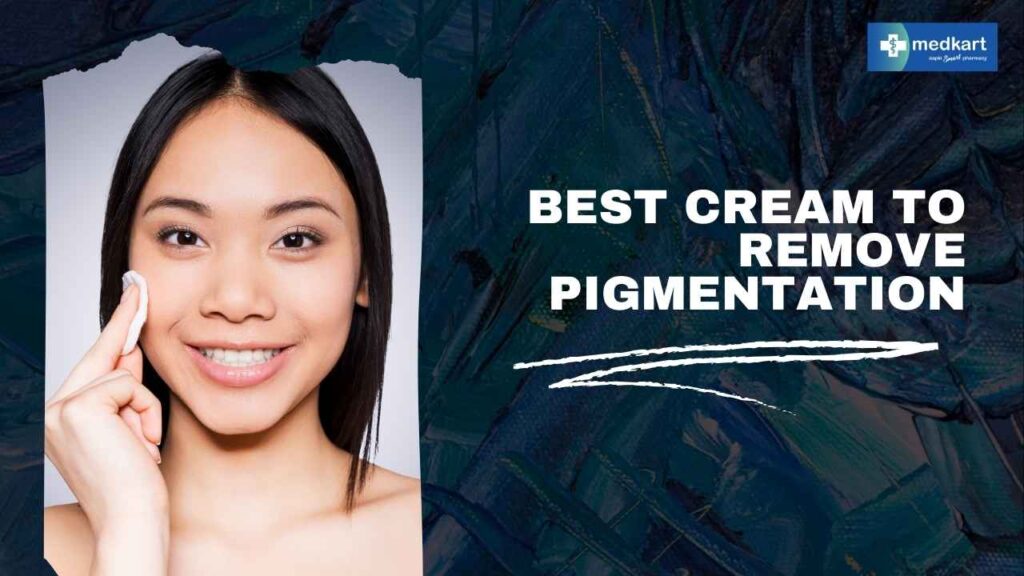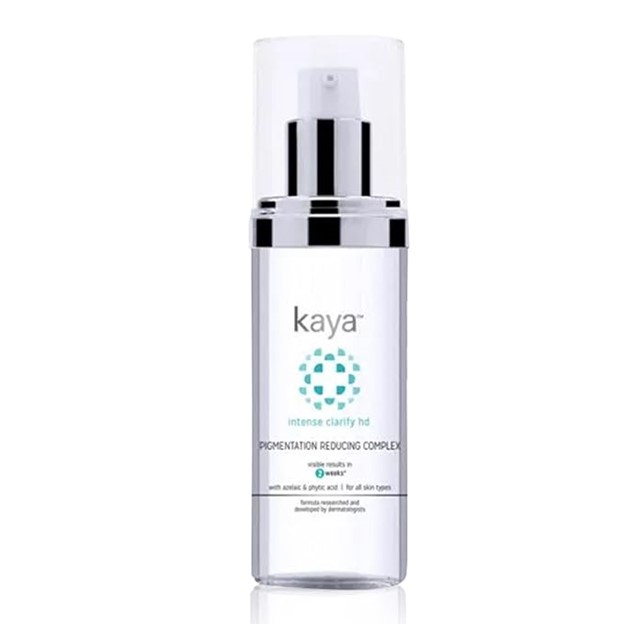Last updated on April 7th, 2025 at 06:12 pm

Pigmentation, a common skin woe, often stems from various factors such as sun exposure, hormonal changes, genetics, and even environmental pollutants. In India, where the tropical climate amplifies skin issues, finding the right cream to tackle pigmentation becomes crucial. With a plethora of products flooding the market, choosing the best cream can be overwhelming.
Pigmentation refers to the uneven coloring of the skin, manifesting as dark spots, patches, or freckles. Melanin, the pigment responsible for skin color, can become hyperactive due to various triggers, leading to excess production and deposition, resulting in pigmentation.
Factors Affecting Pigmentation
Pigmentation, often seen as patches or uneven skin tone, is a common concern for many individuals. While it may not pose a serious health risk, it can significantly impact one’s self-esteem and confidence. Understanding the factors that contribute to pigmentation is crucial in effectively addressing this issue. In India, where factors like climate, lifestyle, and genetic predisposition play significant roles, it’s essential to delve deeper into the complexities of pigmentation.
-
Sun Exposure:
One of the primary causes of pigmentation is exposure to ultraviolet (UV) radiation from the sun. In India, where sunlight is abundant throughout the year, prolonged exposure without adequate protection can lead to increased melanin production. This results in the formation of dark spots, commonly known as sunspots or solar lentigines.
-
Skin Type and Ethnicity:
Different skin types react differently to UV radiation. People with fair skin are more susceptible to sun damage and pigmentation compared to those with darker skin tones. In India, where there is a diverse range of skin tones due to the country’s ethnic diversity, pigmentation concerns can vary widely among individuals of different ethnicities.
-
Hormonal Changes:
Hormonal fluctuations, particularly during pregnancy (melasma) or due to hormonal disorders like polycystic ovary syndrome (PCOS), can trigger pigmentation issues. This type of pigmentation, known as hormonal pigmentation or melasma, often appears as dark patches on the face and is commonly referred to as the “mask of pregnancy.”
-
Genetics:
Genetic predisposition plays a significant role in determining an individual’s susceptibility to pigmentation. People with a family history of pigmentation disorders are more likely to develop similar concerns themselves. In India, where consanguineous marriages are not uncommon, certain genetic factors may be more prevalent within specific communities or regions.
-
Environmental Factors:
Pollution, heat, and humidity can exacerbate pigmentation issues by causing inflammation and oxidative stress on the skin. In urban areas of India, where pollution levels are high, individuals may experience accelerated skin aging and increased pigmentation due to prolonged exposure to environmental pollutants.
-
Skin Trauma and Inflammation:
Any form of skin trauma, such as acne, cuts, or burns, can lead to post-inflammatory hyperpigmentation (PIH). This occurs as a result of the skin’s natural response to injury, where melanin production increases in the affected areas. Improper skincare practices, such as aggressive exfoliation or using harsh chemical products, can also contribute to skin inflammation and pigmentation problems.
-
Nutritional Deficiencies:
Poor dietary habits and nutritional deficiencies can impact skin health and contribute to pigmentation issues. Inadequate intake of vitamins and minerals essential for skin regeneration and protection, such as vitamin C, vitamin E, and antioxidants, can compromise the skin’s ability to repair and defend against damage.
-
Medications and Medical Conditions:
Certain medications, such as oral contraceptives and antibiotics, can cause pigmentation as a side effect. Additionally, underlying medical conditions like autoimmune disorders and liver disease can manifest with pigmentation abnormalities, indicating systemic issues affecting skin health.
Which Is The Best Cream To Remove Pigmentation?
When selecting a pigmentation cream, several factors come into play, including skin type, ingredients, effectiveness, and affordability. Here are some top recommendations for pigmentation creams in India:
-
Kaya Pigmentation Reducing Complex:
Cream To Remove Pigmentation – Buy at 15%
Kaya Skin Clinic is renowned for its dermatologically-tested products, and the Pigmentation Reducing Complex is no exception. Enriched with potent actives like azelaic acid, phytic acid, and glycolic acid, this cream effectively targets dark spots and uneven skin tone. Regular use can visibly reduce pigmentation, revealing clearer, brighter skin.

-
Lotus Herbals Whiteglow Skin Whitening & Brightening Gel Crème:
Lotus Herbals offers a budget-friendly option with its Whiteglow Gel Crème. Infused with SPF 25 and extracts of grape, mulberry, saxifrage, and milk enzymes, this cream not only combats pigmentation but also provides sun protection and hydration. Its lightweight formula absorbs quickly, making it suitable for all skin types, especially oily or combination skin.
Cream To Remove Pigmentation – Buy at 15%
-
Biotique Bio Dandelion Ageless Lightening Serum:
Biotique, known for its Ayurvedic formulations, presents a natural solution to pigmentation woes with its Bio Dandelion Ageless Lightening Serum. Featuring dandelion, nutmeg oil, and Vitamin E, this serum lightens pigmentation, minimizes dark spots, and evens out skin tone. Its gentle, herbal ingredients make it suitable for sensitive skin types as well.
Cream To Remove Pigmentation – Buy at 15%
-
Olay White Radiance Brightening Intensive Cream Moisturizer:
Olay’s White Radiance range is tailored to address pigmentation concerns, and the Brightening Intensive Cream Moisturizer is a standout product. Infused with Vitamin B3, pro-Vitamin B5, and antioxidants, this cream deeply hydrates the skin while reducing dark spots and improving overall skin radiance. Its non-greasy formula makes it ideal for daily use, imparting a luminous glow with regular application.
Cream To Remove Pigmentation – Buy at 15%
-
Neutrogena Rapid Tone Repair Dark Spot Corrector:
Neutrogena’s Rapid Tone Repair Dark Spot Corrector is formulated with accelerated retinol SA and Vitamin C to fade stubborn pigmentation and reveal brighter, more even-toned skin. This fast-acting serum absorbs quickly and is suitable for all skin types, including sensitive skin. With continued use, it effectively diminishes the appearance of dark spots, sun damage, and age spots.
Cream To Remove Pigmentation – Buy at 15%
Conclusion
In the quest for flawless, radiant skin, combating pigmentation is a crucial step, and choosing the right cream can make all the difference. From dermatologist-recommended formulations to Ayurvedic remedies and budget-friendly options, the Indian market offers a diverse range of pigmentation creams to suit every need and preference. Whether you opt for Kaya’s clinical expertise, Lotus Herbals’ botanical wonders, or Biotique’s Ayurvedic prowess, consistency and patience are key to achieving visible results. Remember to complement your skincare routine with sun protection, healthy lifestyle habits, and regular consultations with a dermatologist for personalized recommendations and optimal skin health. Say goodbye to pigmentation woes and hello to luminous, even-toned skin with the best cream suited for your needs.
FAQs On Which Is The Best Cream To Remove Pigmentation?
1. Which Is The Best Cream To Remove Pigmentation?
Melacare Cream” is widely regarded as one of the best pigmentation removal creams in India, containing a combination of hydroquinone, tretinoin, and mometasone. However, it’s essential to use it under medical supervision due to potential side effects and to ensure it’s suitable for individual skin types and conditions. Consulting a dermatologist for personalized recommendations is advised.
2. What are the key factors to consider when choosing a pigmentation removal cream in India?
Look for creams containing ingredients like hydroquinone, kojic acid, or retinoids, which are known to fade pigmentation effectively. Consider your skin type and any sensitivities you may have to certain ingredients. Consult a dermatologist for personalized recommendations based on your specific pigmentation issues and skin concerns.
3. Are there any over-the-counter pigmentation removal creams widely available in India?
Yes, several over-the-counter creams are available in India, such as Melacare, Kojivit, and Glyaha-Koj. However, it’s essential to use them cautiously and follow the recommended usage guidelines. Always check the ingredients list and ensure that the cream is suitable for your skin type. Consider the reputation of the brand and any reviews or testimonials from users before making a purchase.
4. How long does it typically take to see results from using pigmentation removal creams in India?
Results can vary depending on the severity of the pigmentation, the ingredients in the cream, and individual skin factors. In many cases, noticeable improvement may be seen within a few weeks of consistent use, but it may take several months to achieve significant results. Patience and consistency are key, along with following a proper skincare routine and protecting your skin from further sun damage by using sunscreen regularly.
